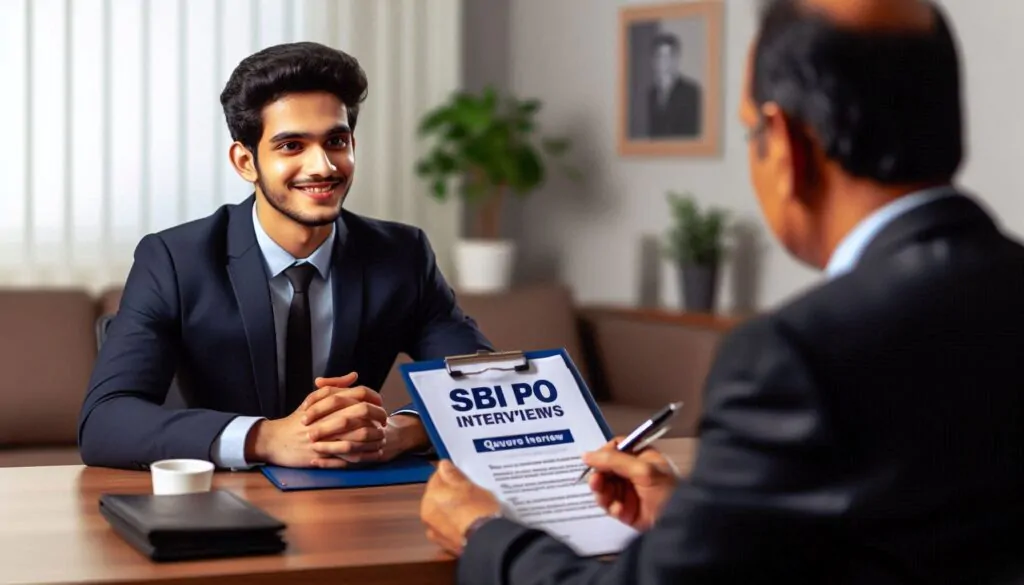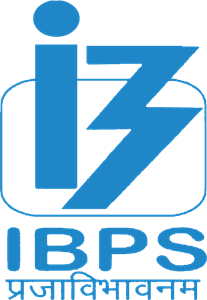The SBI PO recruitment process isn’t just a test of knowledge—it’s a life-changing opportunity for anyone aspiring to step into the world of banking. For me, clearing the prelims and mains felt like conquering mountains, but the interview round was a completely different challenge.

This stage isn’t just about answering questions; it’s about proving to the panel that you’re the right fit for a role that demands intellect, leadership, and composure under pressure. I walked into the interview room with equal parts excitement and nervousness, not knowing that this one hour could shape my career forever.
Common Interview Topics for the Interview Stage
Through this post, I’ll guide you with tips, share insights, and narrate my own experiences to help you crack the SBI PO interview and turn your dream into reality.
General Awareness and Current Affairs: My Experience and Tips
When I started preparing for the SBI PO interview, I knew that staying updated with current affairs would be crucial. But I underestimated how deep the panel’s questions could go. During my interview, one of the first questions was about inflation—how it impacts everyday life and what measures the Reserve Bank of India takes to control it. I remember pausing for a moment, organizing my thoughts, and answering with examples I’d read in the news.
The panel didn’t stop there. They asked about India’s GDP growth rate and how unemployment figures affect the economy. I realized it wasn’t just about quoting facts; it was about connecting them to real-world implications.
Political developments were another hot topic. I was asked to explain a recent reform in taxation and its effect on citizens. At that moment, I was grateful for having spent time understanding not just the policy itself but also the debates surrounding it.
International relations came up too. “What’s your opinion on India’s role in BRICS?” one of the panelists asked. I spoke about economic cooperation and how platforms like G20 help India build strategic alliances. Looking back, I feel my ability to express balanced views worked in my favor.
But the most impactful moment for me was when they questioned me about social issues. “What steps would you suggest to bridge the digital divide in rural India?” they asked. I shared my thoughts on improving internet access and digital literacy, especially for women and students. It wasn’t just about giving the right answer—it was about showing empathy and a problem-solving approach.
My Tip for You:
Don’t just memorize current affairs; try to analyze them. Think about the “why” and “how” behind every issue. Read newspapers, watch discussions, and practice forming your opinions. It’s your understanding, not just your knowledge, that will leave a lasting impression on the panel.
Banking Awareness: My Key Takeaways
During my SBI PO interview, banking awareness was a central theme. The panel tested my understanding of core concepts like CRR, SLR, and Repo Rate by asking how these impact the economy. They also touched on recent trends such as UPI and the role of blockchain in banking, which I explained with real-world examples.
One memorable moment was when they asked about government schemes like PM Kisan and Digital India. I shared how these initiatives contribute to financial inclusion and digital transformation in rural areas.
Tip: Grasp the basics thoroughly and stay updated on banking innovations and government policies—they’re key to acing this section.
Personal and Professional Background: Key Areas to Prepare
The SBI PO interview often includes questions about your personal and professional journey. Here’s how to tackle this section effectively:
- Academic Qualifications:
- Be prepared to explain how your education aligns with a banking career.
- For example, if you studied commerce or economics, highlight how it gives you an edge in understanding banking principles.
- If your background is unrelated, focus on transferable skills like analytical thinking or problem-solving.
- Work Experience (If Any):
- Emphasize skills gained, such as teamwork, leadership, or handling deadlines.
- Share specific examples, like how you managed a challenging project or resolved a customer issue.
- Relate these experiences to the banking environment, e.g., “This taught me how to stay composed under pressure, which is vital for a banker.”
- Hobbies and Interests:
- Choose hobbies that reflect discipline, creativity, or a proactive mindset, such as playing chess, painting, or volunteering.
- Be ready to discuss what you’ve learned from your hobby—e.g., “Playing chess has improved my decision-making skills, which I believe is essential for banking.”
Tip: Be honest and confident while sharing your journey, and always link your responses back to how these qualities can benefit you as an SBI PO.

Behavioral Questions: What to Expect and How to Respond
Behavioral questions in the SBI PO interview are designed to assess your problem-solving abilities, emotional intelligence, and ethical judgment. Here are some examples to help you prepare:
- Situational Questions:
- “How would you handle a difficult customer?”
- “What would you do if your team missed a critical deadline?”
- “Imagine you’re assigned a task outside your expertise—how would you approach it?”
- Stress-Related Questions:
- “Tell me about a time you failed and how you handled it.”
- “What would you do if you were underperforming in your role?”
- “Describe a situation where you had to work under intense pressure.”
- Ethical Dilemmas:
- “What would you do if you found a large sum of money in your branch?”
- “A customer offers you a gift to expedite their loan approval. How would you respond?”
- “How would you react if you discovered a colleague was involved in unethical practices?”
- Decision-Making Questions:
- “If you were faced with two equally important tasks, how would you prioritize?”
- “What steps would you take to resolve a conflict between team members?”
- “How would you handle a policy disagreement with your manager?”
- Leadership and Teamwork Questions:
- “Describe a time when you led a team to achieve a goal.”
- “What would you do if a team member wasn’t pulling their weight?”
- “How do you motivate others to work towards a common objective?”
Tip: When answering behavioral questions, use the STAR method (Situation, Task, Action, Result) to structure your responses. This ensures clarity and demonstrates your ability to handle complex scenarios effectively.
Preparation Tips: How to Get Ready for the SBI PO Interview
Consistency in preparation and regular practice will help you approach the interview with confidence. Here are some more tips to help you perform your best in the last stage.
- Stay Updated:
- Focus on recent developments in current affairs, especially in economics, politics, and international relations.
- Brush up on key banking trends, government schemes, and RBI policies.
- Review your academic subjects, particularly those relevant to banking.
- Practice with Mock Interviews:
- Participate in mock interviews conducted by professionals, coaching centers, or peers.
- Simulate the interview environment to build confidence and improve your communication skills.
- Request feedback to identify areas for improvement and refine your answers.
Body Language and Communication Skills: The Key to Making a Strong Impression
- Posture and Eye Contact:
- Sit upright with a confident posture. It shows attentiveness and respect.
- Maintain steady eye contact with the interviewers, but avoid staring. It conveys confidence without being intimidating.
- Hand Gestures:
- Use natural hand gestures while speaking to emphasize key points.
- Avoid excessive movements or fidgeting, as it may come across as nervousness.
- Clarity and Composure:
- Speak clearly and at a moderate pace to ensure your answers are easily understood.
- Avoid filler words like “um,” “like,” or “you know”—they can make you sound unsure.
- Stay calm and composed, even if you face a tough question. A calm demeanor speaks volumes about your ability to handle pressure.
Tip: Practice in front of a mirror or with a friend to perfect your body language and communication skills before the interview.
Body Language, Communication Skills, and Dress Code: The Essentials
- Body Language:
- Sit up straight to project confidence and respect.
- Maintain eye contact with the interviewers—this shows attentiveness and engagement.
- Use hand gestures naturally to support your answers, but avoid overdoing it to prevent distraction.
- Communication Skills:
- Speak clearly and at a steady pace. Avoid rushing through your answers.
- Refrain from using filler words like “um” or “like” that may make you seem unsure.
- Keep your tone calm and composed, especially when facing challenging questions.
- Dress Code:
- Opt for formal, professional attire. A well-fitted suit or formal shirt and trousers are ideal.
- Stick to neutral, subtle colors like navy, black, or grey—these are safe and convey professionalism.
- Make sure your clothes are clean, pressed, and comfortable, as this helps boost your confidence during the interview.
Tip: Pay attention to your overall presentation, as it creates the first impression before you even speak.
Confidence and Positive Attitude: Key to a Successful Interview
- Stay Calm and Focused:
- Maintain composure throughout the interview, even if you encounter difficult questions.
- Take a deep breath if you feel nervous—this will help you think more clearly and stay in control.
- Respond with a Smile and Polite Tone:
- Smile when appropriate to convey warmth and confidence. A friendly demeanor can help establish a good rapport with the interviewers.
- Always use a respectful and polite tone, regardless of the question. It reflects your professionalism and maturity.
Tip: Confidence is not about knowing all the answers; it’s about how you handle challenges with a positive and composed attitude.
Tips for Answering Common Questions
- “Why should we hire you for SBI PO?”
- Highlight your strengths, such as problem-solving, leadership, or strong communication skills.
- Emphasize your adaptability and willingness to learn, showing that you are ready to contribute to the bank’s success.
- Share your enthusiasm for the role and how it aligns with your career goals.
- “How to ace the SBI PO interview on your first attempt?”
- Stay updated on current affairs, banking trends, and government policies.
- Practice answering frequently asked questions and develop clear, concise responses.
- Build your confidence by simulating mock interviews and receiving feedback to improve.
Tip: Your answers should reflect your unique skills and passion for the role while showing that you’re well-prepared and aligned with the bank’s goals.
Common Mistakes to Avoid in the SBI PO Interview
- Overconfidence or Excessive Humility:
- Avoid sounding arrogant by overstating your abilities. Confidence is important, but humility shows you are open to learning.
- Don’t be overly modest either; failing to highlight your strengths can leave the interviewers unsure of your capabilities.
- Long-Winded Answers or Irrelevant Information:
- Stay concise and to the point. Rambling or providing unnecessary details can make you seem unprepared.
- Ensure every answer is relevant to the question asked. Stick to the core topic and avoid going off on tangents.
Tip: Strike the right balance between confidence and humility, and always be clear and focused in your responses.
Conclusion
Clearing the SBI PO interview is not an easy feat, but with the right preparation, mindset, and practice, it’s definitely achievable. By mastering the key topics, applying the tips shared above, and avoiding common mistakes, you’ll greatly improve your chances of success.
Remember, the interview isn’t just about what you know—it’s also about demonstrating your potential to be a future leader in the banking sector. Stay confident, stay prepared, and keep your focus sharp.
Good luck, and believe in yourself—you’ve got this!









